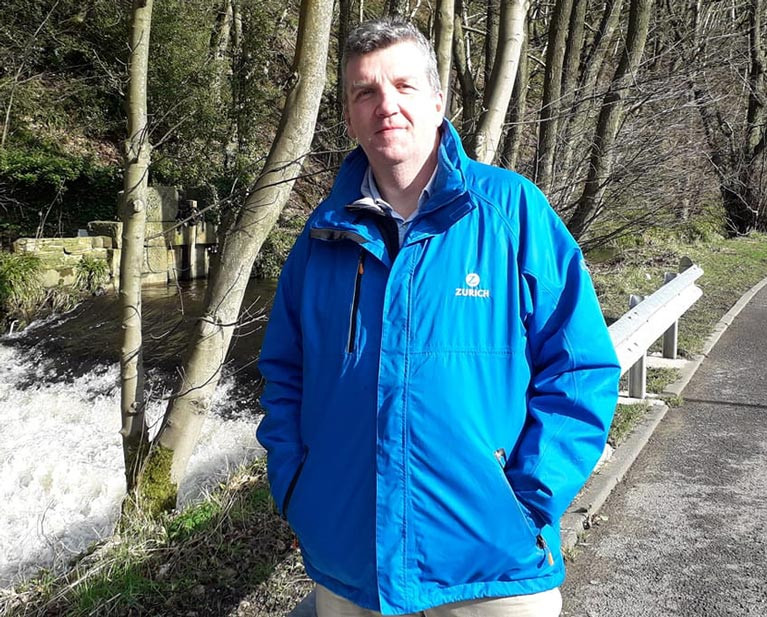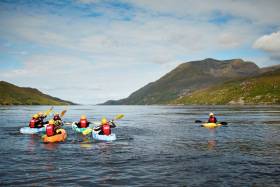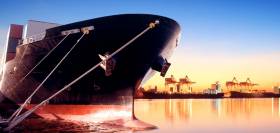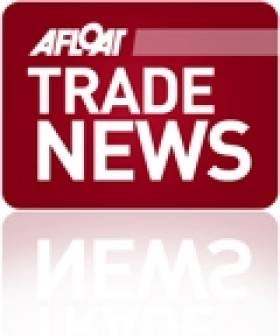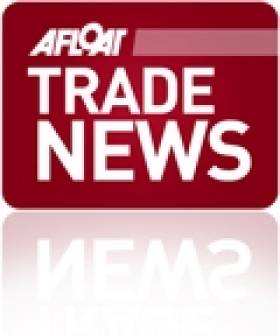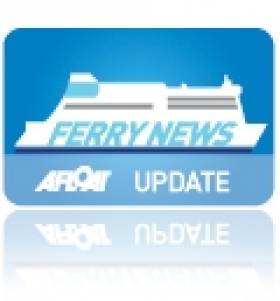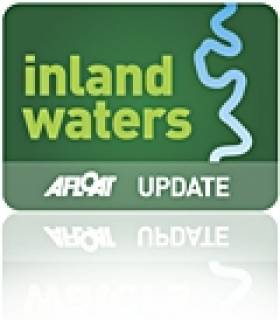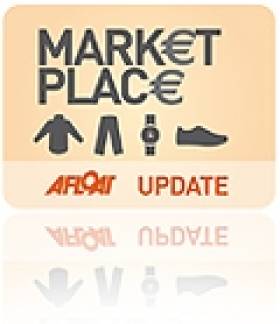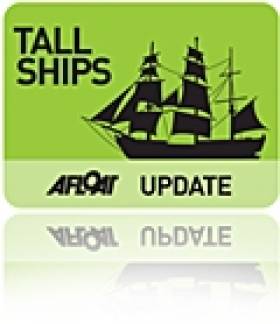Displaying items by tag: Insurance
The insurance loss related to collapse of the Francis Scott Key Bridge outside the port of Baltimore, USA this week is likely to be multiple billions of dollars.
That’s according to Lloyd’s of London John Neal, who told Bloomberg that the incident on Tuesday (26 March) “has the potential to be one of the largest marine losses in history”.
Barclays analysts estimate that marine insurers face claims of up to €3 billion, with more than €1 billion of that figure for the bridge collapse alone — while there may be further liability related to disruption to one of the US east coast’s busiest ports.
As Marine Industry News reports, large sections of the 2.57km bridge collapsed after one of its supports was hit by the cargo ship Dali, which reported losing power minutes before the incident.
The bodies of two members of a construction crew who were working on the bridge at the time have been recovered, but four others remain missing.
Marine Industry News has more on the story HERE.
Paul Ivory Joins Craftinsure as Ireland Manager
Boat insurer Craftinsure Ltd has announced that Paul Ivory ACII has joined the company as local manager of the Irish business, based in Bray, Co. Wicklow.
Since Craftinsure launched its online boat insurance facility in Ireland in 2008, the business has grown significantly each year and continues to do so even during this current difficult period.
Paul brings with him a wealth of experience, having been a senior underwriter with Zurich Insurance in Dublin for 20 years, including specific responsibility for their marine business.
Zurich Insurance has always underwritten Craftinsure’s policies and so Paul was already well known to the Craftinsure management team.
Craftinsure director Rod Daniel comments “we feel very fortunate to have been able to add someone of Paul’s experience and calibre to the team. He will undoubtedly help towards maintaining great service for our customers as we continue to grow”.
Insurance Cover Woes For Ireland’s Outdoor Activity Sector
Outdoor adventure activities such as kayaking could be threatened by issues with Ireland’s insurance industry, as The Times reports.
Killary Adventure Company is one of a number of activity providers that have spoken out over a growing trend of insurers refusing to approve expansions to their offerings, or hiking their premiums year on year.
“It’s very limiting. In Ireland, there is no such thing as an accident — someone is always to blame,” general manager Shane Young said.
Eamonn Flynn of Zipit Forest Adventures, which operates in Dublin, Cork and Roscommon, blamed “a lack of underwriters” for the rising costs of insuring outdoor activities in Ireland.
He added: “In the next three years we could be in big trouble.”
The Times has more on the story HERE.
Insurers Seek New Port In Ireland Amid Brexit Storm
#Shipping - Britain’s potential loss of access to the EU single market has already seen two of the world’s top shipping insurers choose Ireland as a new base of operations, as The Irish Times reports.
Standard Club and North P&I Club are two of the specialist ‘protection and indemnity clubs’ that announced in the last week their intention to set up EU subsidiaries in Dublin during 2018.
The move is a contingency plan amid continued uncertainty over the exit from the European Union of the UK, which is the market leader in the global marine insurance industry.
Ireland is among a number of locations such as Cyprus and Luxembourg being considered by London-based insurers seeking to preserve their access to a market that accounts for a sizeable percentage of their business.
The Irish Times has much more on the story HERE.
Boating has always been a part of the business for Yachtsman Euromarine, says managing director Matthew McGrory, going back to when the company began as MJ O'Neill Insurances Limited in 1974.
Started by his grandfather Matthew James O'Neill and father William McGrory, the then Clondalkin-based brokerage at first dealt with insurance across the board, marine coverage being just one facet of a portfolio that also included cars, homes and businesses.
But from this foundation, Yachtsman has grown over the decades into Ireland's leading boat insurance specialist, protecting boaters' lifestyles while sharing their passion for all things marine.
Of course, the broker's expertise in the marine business is bolstered by its consummate experience in the general insurance market.
William McGrory took the helm after his father-in-law's death in 1976, and with his son Matthew coming on board, the business was steered towards a huge leap forward in 1984.
This was thanks to a partnership with various syndicates at Lloyd's of London, which saw the company appointed as Lloyd's coverholder for the British insurance giant to underwrite household insurance in Ireland.
In the years that followed, Matthew's passion for boating saw the already established marine side of the business grow to such an extent that, by 1995, it was decided that developing a specialist market for marine insurance was the way forward. Thus the Yachtsman brand was born in May 1997.
"We obtained a second underwriting agency from Lloyd's for pleasure craft insurance," says Matthew, "and we haven't looked back since."
First-hand experience
Launching with a staff of just three, the Yachtsman brand brought to the Irish market a brand new product offering wider marine cover with a competitive edge to premiums.
But more than that, there was the firm’s small but dedicated staff - who were themselves involved in boating as a pastime, and as such had a complete understanding of clients’ requirements - which soon became recognised as a key benefit of signing up for a policy with Yachtsman.

Company founder – Yachtsman Euromarine was started by Matt McGrory's grandfather Matthew James O’Neill
The next five years was a period of significant growth for the Yachtsman brand that saw the business move from its office in Clondalkin to new, larger premises in Clane, Co Kildare.
It was also in this period that the McGrorys focused their efforts on the developing maritime brokerage and sold off the general insurance business to specialise fully in pleasure craft.
The market was expanding fast as the economy boomed, and Yachtsman was there from the very beginning to offer value-for-money policies backed up with priceless first-hand experience.
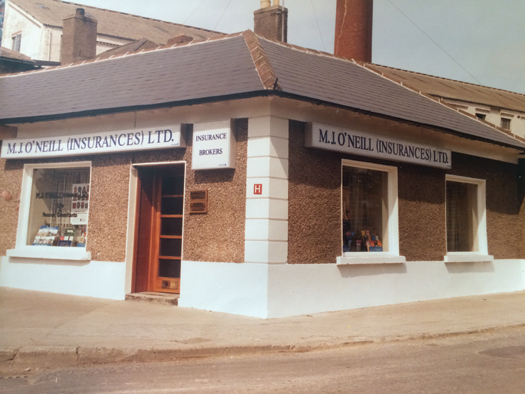
The Clondalkin, County Dublin premises of founders, MJ O’Neill Insurances Limited in 1974.
New decade, new name, new markets
The next big step for the company came in February 2005, when MJ O’Neill Insurances Limited - now trading solely as Yachtsman - bought out competitor Euromarine, growing its staff to seven and re–launching the following month as the combined brand Yachtsman Euromarine at that year’s Dublin Boat Show in the RDS.
“The purchase of Euromarine opened up new markets to us in the marine trades and yacht club sections,” says Matthew, who adds that “with the combined turnover of both companies, we now had better buying power in the insurance market, and secured underwriting authorities with the two biggest marine syndicates at Lloyd’s.”
Another invaluable asset was Bill Cullen, who oversaw Yachtsman Euromarine's continued growth throughout the ‘Celtic Tiger’ years and even now, after retiring in 2010, still keeps a keen eye on progress.
A successful business must keep evolving and developing its skills to stay ahead, and the next stage for Yachtsman Euromarine would test this to the limit. In 2010, the brokerage was appointed by the Lloyd’s syndicates to handle their marine claims in Ireland.
“The business model for this was based on a Canadian coverholder that has a similar-size turnover to Yachtsman,” explains Matthew. “After many meetings with our syndicates in Lloyd’s, we took on the task and employed two more staff, one with claims-handling experience from a local insurer and the second with a marine trade and repair background.”
As a new venture for the business, this shift into trades and repairs was not without its teething problems - no doubt exacerbated by the contraction of the boating market as the credit crunch persisted in putting the squeeze on wallets.
But the benefits would come with time, and Matthew is particularly proud that Yachtsman has the support of “a very comprehensive panel of repairers that can produce a quality repair and get the client back on the water quickly. At the end of the day, that's what's important."
The same time period would also see Yachtsman Euromarine become the title sponsor of the ISA RIB Challenge, promoting safe boating to younger budding sailors throughout the country.
But there’s only so far a business can grow in its home market, and Yachtsman would look abroad for its next leap forward.
Conquering Spain
“For a number of years we had been transacting business in Spain, primarily for the ex–pat market,” says Matthew, who adds that those new overseas contacts were put to good use in 2012 with the launch of Yachtsman Euromarine’s first Spanish-language policy to cover that local market.
Though beginning with only a small presence in Spain - a perennially popular destination for Irish retirees, holidaymakers and boating enthusiasts - Matthew says that foothold was invaluable in helping Yachtsman to identify the “massive potential” in the local pleasure craft insurance market.
The next step would be exploring how to export Yachtsman’s range of services into Spain.
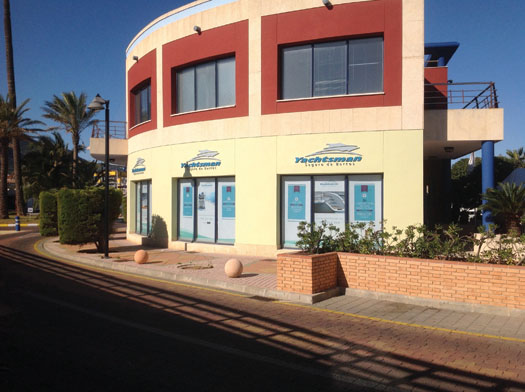
The opening of Yachtsman’s first international office in Denia, Spain in a prime position on the Costa Blanca
“To put it in context, one small geographical area in Spain has the same pleasure craft market size as the whole of Ireland,” he says. “So we began a research project into how it might be possible to take on, and manage from our office in Clane, large volumes of cover, while managing the risk-loss potential in multiple locations.”
Thanks to the support of Enterprise Ireland, Yachtsman developed what Matthew describes as an “innovative system” that allows for the underwriting of risks to take in more parameters in setting rates. "This has completely changed how premiums are calculated, and we are better able to reward policies with no claims but also pinpoint hotspots where frequent claims are becoming a concern."
Forty years at the front
Fast-forward to March of this year, and the opening of Yachtsman’s first international office in Denia, a prime position on the Costa Blanca at the midway point between Alicante and Valencia, and the main link to the Balearic Islands.
This opening also saw the hiring of the brokerage’s first Spanish staff, allowing the business to move forward in developing its products for the local market.
After the lean recession years, business is on the up again across the marine markets - and none more so than for Yachtsman Euromarine, which is celebrating a remarkable 40 years in business this month.
For Matthew McGrory, it’s a time to look back with pride at the reputation Yachtsman has earned within the industry as an authority in boat insurance, not to mention for its superior customer service and the expert advice and innovative solutions the company delivers for the marine sector.
As Yachtsman’s website simply states, they know about boats.
As for where Yachtsman goes from here? “Well, building our business in Spain will keep us busy and growing for the next few years,” says Matthew, “but then who knows? I’ve plenty of ideas!”
Contact: Yachtsman Euromarine, College Road, Clane, Co.Kildare T: 045 982668
Craftinsure Launch New Irish Boat Insurance Website
#boatinsurance - Visitors to the Craftinsure.ie website will notice a big difference following a major upgrade which went live on 1st.
Apart from looking more up to date, the site, says Craftinsure's Rod Daniel is even easier to navigate and use.
It also includes a number of new features such as a Third Party Only insurance option, which should prove particularly attractive to those needing just the basic level of protection and to comply with any waterways regulations, with annual premiums starting at €75 and no survey requirement.
Apart from immediate quotations online, claim progress can be tracked and as previously, there is a monthly payment option at no extra cost where the annual premium would be over €100.
The website now also includes a new insurance option specifically for canoes and kayaks within the Small Boats category.
Craftinsure's Rod Daniel comments "we frequently receive feedback from customers to say they found our website very quick and easy to use and hope the new version will prove even more popular, though some might miss the water noises!"
Marine Notice: Liability of Carriers of Passengers by Sea in the Event of Accidents
#MarineNotice - The latest Marine Notice from the Department of Transport, Tourism and Sport (DTTAS) draws attention to EU regulations pertaining to the liability of carriers of passengers by sea in the event of accidents.
The new EU Regulation 392/2009 came into force last week on 31 December 2012, incorporating provisions of the 2002 protocol to the Athens Convention relating to the carriage of passengers and their luggage by sea, which introduced compulsory insurance to cover passengers on ships such as passenger ferries, and covers the liability of the carrier in respect of passengers, their luggage and vehicles.
Full details of the new regulations are available in Marine Notice No 2 of 2013 via the department website HERE.
Check Your Marine Insurance Before Mooring for the Winter
#INLAND WATERWAYS - Anyone with boats afloat on Ireland's inland waterways have been advised to check with their insurers before mooring their vessels for the winter.
Stuart McNamara of Powerboat.ie comments on the website's forum regarding his own cautionary tale while searching for a winter mooring spot for his Freeman 27, which is normally used as a training boat by Hodson Bay Watersports Athlone.
"Luckily, I checked with my insurers before I moved across the lake," he writes. "It appears that they no longer insure winter moorings unless they are at supervised marinas or floating jetties at public harbours.
"The reasoning behind this was explained to me as being the greatly increased risk from unattended mooring lines in rising water levels. I have seen many boats sinking alongside Hodson Bay Pier in recent years because of this, so the insurer's position does make sense and is understandable."
He adds: "The lesson to be learnt is to check your marine insurance if just tied alongside somewhere unattended for the winter!"
New Offer to Pay Boat Insurance By the Month
Previously reserved for much higher premiums, the monthly payment option is available to both new and existing customers for no additional charge thanks to the highly automated nature of Craftinsure's online facility, underwritten by the Zurich Insurance Group.
The move is intended to help more owners in spreading their boating costs over the course of the whole year, whilst still keeping premiums as low as possibl, says Craft insure's Rod Danie. For more details www.craftinsure.ie or call Freefone 1800 844 100.
Tall Order for Ireland
Sailing in Ireland could yet have a tall ship to replace the Asgard II and the Lord Rank. A meeting in Dublin in late March represents a major step forward in the process to put an Irish tall ship back on the high seas.
The open workshop, to be held on March 26th, will be facilitated by Dublin Port, and will include state interests, tourism interests, commercial port interests, youth organisations, maritime organisations and education groups, together with the former Lord Rank and Asgard II operators.
The catalyst for the initiative is a 'reference group' which represents a broad cross-section of interests, both North and South. Operating under the chairmanship of Lord Glentoran, and supported by Dr Gerard O'Hare, David Beattie and Enda O'Coineen, the group has also engaged a professional consulting firm to move the process along.
The initial focus is on the necessary organisation and rationale behind building a new vessel, while scientifically quantifying the benefits to build a plan and justification.
The view taken is that, while there may be no money available at this time, there is no excuse for not having a plan and the idea is to create ' joined-up' thinking. And while the government in the South placed the insurance money paid out on Asgard II back into general exchequer funds, the insurance payment on the Lord Rank was kept and ' ring-fenced' for this new initiative.
To date, there have been several meetings of the reference group. The planned workshop on the subject at Dublin Port March 26 is open and interested parties are invited to contribute. It will also bring together for the first time the leaders of Tallships in Dublin, Belfast, Waterford and Cork.
Ultimately Tall Ships is about youth training and development; without an active Tall Ship, it will be very difficult for Ireland to attract Tall Ship events. The new reference group will work to support the new Sail Training Ireland Association initiative, and link in with Sail Training International which runs Tall Ship events.
Following the Dublin workshop, Belfast Harbour Commissioners will host a working meeting of the group in early May to finalise a plan, present to stakeholders and create a roadmap forward.
"In addition to youth training, a working Tall Ship forms a brilliant ambassadorial role promoting tourism, enterprise and commercial interests," said Lord Glentoran. "It is something that we can all relate to and it has universal acceptance for youth training on an island of Ireland basis." Lord Glentoran has a long commitment to youth sail training and was Chairman of the organising committee that brought the Tall Ships to Belfast in 1991.
The reference group is seeking to engage with as many stakeholders as possible, and has pledged that the new vessel will be owned by the community in Ireland and the Irish Diaspora. The initial view is that the project clearly needs to be linked with the institutions of State - North and South - as are universities state agencies and ports, while at the same time having a strong private support network making for a mix of public and private funding, "We now have a brilliant opportunity to look around the world, establish best practice in the best kind of vessel, how to fund it and to quantify the benefits for each of the stakeholder group," said Enda O'Coineen, who has been instrumental in bringing the group together. In addition to being a former Coiste and Asgard Director, he is the founding Chairman of Let's Do It Global, which brought the Volvo Ocean Race to Galway and successfully raced the Green Dragon around the world.
O'Coineen added that a "world class solution" can be created and that its benefits can be financially quantified, which would allow supporters to make a compelling business case to divert and use existing funds in Tourism, Enterprise and Youth Training. "While there is no money available now to support the scale and professionalism needed, this is not an excuse not to have a plan and a vision," he added.
Since the loss of the Asgard II and Lord Rank, Ireland has been left with no sail training opportunities for young people and likewise for maritime development, enterprise and tourism. If nothing is done, future generations will suffer. The reference group believes that the solution is the construction of an Ireland - North and South - training vessel, fulfilling several roles with a common mission and resourced according to quantifiable benefits delivered to stakeholders. It is also open to the use of an existing vessel - a key component being suitability and the operations budget.
The proposed Tall Ship project will enhance skills and opportunities for young people across the island, regardless of background, class or education. It could be used to showcase Ireland as a brand at overseas events and it could also host international students who wish to come to the island of Ireland, as is the case with many of the International Tall Ships Programmes already running on a global scale which create a huge amount of tourism for their respective countries.
The reference group notes that the Tall Ships concept appeals to young and old alike as the romanticism behind the concept touches on history, social studies, legacy, family, travel, adventure and, most importantly, fun. Tall Ships allow people to dream. They do however have an underlying seriousness and the concept is grounded in methodology that has been tested and proven the world over.
An advertisement in March/April of Afloat magazine - out now - gives full detials of the 'Tall Ship for Ireland' Workshop
Should Ireland be represented at the Tall Ships Races at Waterford 2011 and Dublin 2012? We want your vote on our Facebook Poll HERE.
Looking for further reading on Tall Ships in Ireland? Click the links below:
Click this link to read all our Tall Ships Stories on one handy page
Previewing Ireland's Tall Ships 2011 Season


























